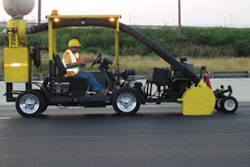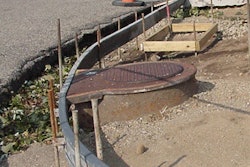OAKLAND, CA /PRNewswire-USNewswire/ - The $450 billion federal transportation bill being debated in Congress right now will clearly have a tremendous impact on how Americans get around for decades to come.
But a new report by PolicyLink and Prevention Institute shows how the same level of investment - done right - could make millions of Americans healthier and cut down on rampant health disparities in low-income communities and communities of color.
The new report, The Transportation Prescription: Bold New Ideas for Healthy, Equitable Transportation Reform in America, lays out key policies and programs that would help improve health outcomes in vulnerable communities, create economic opportunity, and enhance environmental quality. From obesity and asthma to fresh-food access and pedestrian safety, transportation and health are inextricably linked.
Featuring a foreword by Rep. Jim Oberstar, the chairman of the House Transportation and Infrastructure Committee and the author of the proposed federal transportation bill, the report provides a much-needed guide to smart, sustainable transportation policies that will reform our current transportation system to help Americans live safer, healthier lives.
"For too long now, our transportation decision-making has failed to address the impacts that our infrastructure network has on public health and equity," Rep. Oberstar writes in the foreword. "The asphalt poured and lane miles constructed enhanced our mobility and strengthened our economic growth; but too often, this auto-centric mindset took hold and crowded out opportunities to invest in a truly sustainable inter-modal transportation system, in particular a system that meets the needs of underserved communities."
Our auto-centric transportation system leaves many to struggle to get to work, to the grocery store, and to doctors appointments. About 19 percent of African-Americans and 13.7 percent of Latinos lack access to cars, while only 4.6 percent of whites do. Poverty complicates the problem: 33 percent of poor African-Americans, 25 percent of poor Latinos, and 12.1 percent of poor whites lack car access. Simply put, if you're a poor person of color, our transportation system does not serve you well.
"Low-income Americans are hit hard by the double-whammy of poor health and poor access to transportation," said Judith Bell, president of PolicyLink and a co-author of the report. "Policymakers too often don't see the connection between these two problems, though. Congress can make an enormous difference in the health of Americans by encouraging safer, less-polluting forms of transportation and ensuring those new transportation options help boost economic development in vulnerable communities, and connect them to opportunity and essential goods and services."
As a leader in national transportation policy, Rep. Oberstar's involvement in the report signals his key support for a safe, accessible transportation system for all Americans.
The report - commissioned by the Convergence Partnership, a collaboration of funders who have come together with the shared goal of changing policies and environments to better achieve the vision of healthy people living in healthy places - lays out 11 key policy proposals, including:
- Encouraging and funding healthy and environmentally responsible
- Transportation options like buses, light rail, subways, biking, and walking
- Targeting transportation investments to low-income communities and communities of color in order to provide much needed access and lower health disparities
- Opening up the transportation planning process by involving local residents and committing to accountability and transparency so community members can have a say in what their needs are
- Promoting the health benefits of reducing injuries from traffic crashes, encouraging physical activity, and improving respiratory health
"We must fundamentally shift the way communities are designed in order to ensure health and equity in the first place," said Larry Cohen, executive director of Prevention Institute and co-author of the report. "These effective transportation strategies reduce injury and respiratory illnesses, encourage physical activity, and save money - a good solution that solves multiple problems."
PolicyLink (www.policylink.org) is a national research and advocacy institute advancing economic and social equity. Founded in 1999, PolicyLink helps create sustainable communities of opportunity that offer access to quality jobs, affordable housing, good schools, transportation, and the benefits of healthy food and physical activity.
Prevention Institute (www.preventioninstitute.org) was founded in 1997 to address complex health and social issues. We move beyond approaches that target individuals, one person at a time, to create systematic, comprehensive strategies that change the conditions that impact community health. The organization builds on the successes of a variety of fields and applies them to new challenges in fields such as injury and violence prevention, traffic safety, health disparities, nutrition and physical activity, and youth development.
SOURCE PolicyLink

Copyright © 2008 PR Newswire Association LLC. All Rights Reserved.



















